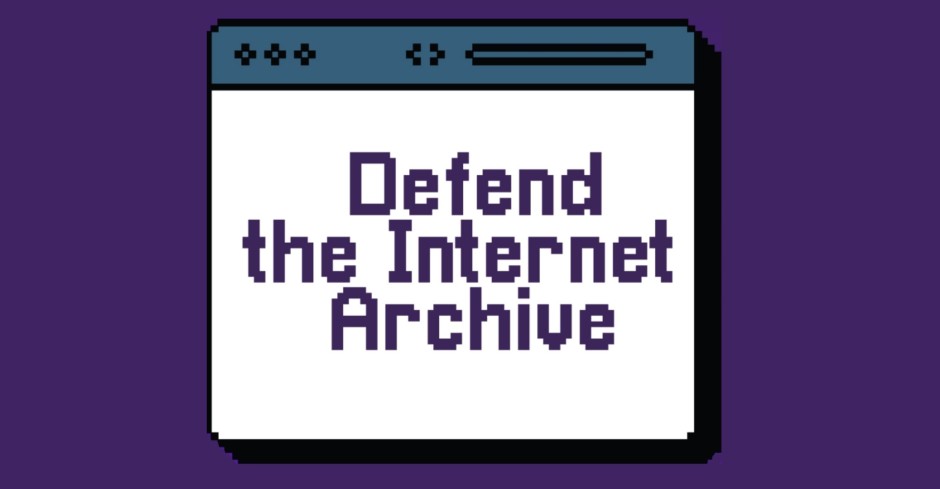What’s happening with the Internet Archive?
Stand up for access to information!
If you’ve been on social media recently, you may have seen all the buzz around the Internet Archive. Here's what's going down: for two years, Big Media publishers have been embroiled in a lawsuit against Internet Archive, a nonprofit digital library, for scanning and lending out digital copies of copyrighted books for free during the early days of COVID-19 to help students, educators, and everyone in lockdown get access to the reading resources they needed.
The Internet Archive (IA) has preserved more than 1.9 million web pages, books, videos, and other digital content since 1996. Its Wayback Machine allows users to access archived web pages and has been used by millions of people worldwide. Their mission is to conserve knowledge and cultural heritage for future generations. By archiving books, movies, and other materials, the IA ensures that these resources are available for future generations to study and enjoy.
The Internet Archive uses controlled digital lending, it owns copies of all the books it digitizes and claims the right to loan out digital copies, as long they’re not lending out more copies than they own. This program is called Open Library and operates under the same copyright principles as an in-person library. Publishers are arguing that the IA’s Emergency Library and Open Library are forms of piracy. The Emergency Library temporarily lifted lending restrictions during the pandemic to allow multiple people to check out the same copy more than once.
The publishers who are suing the Internet Archive argue that its practices violated copyright law. They claim that the organization made digital copies of books without permission from the copyright holders. However, the IA argues their practice falls under fair use, a legal doctrine that allows for the use of copyrighted material for certain purposes, such as criticism, commentary, news reporting, teaching, scholarship, or research.
The organization is not archiving books for commercial purposes. Instead, it is providing access to knowledge and cultural heritage. By archiving books that are out of print or are no longer available, the Internet Archive is ensuring that these resources remain accessible to the public. Without the Internet Archive's efforts, these resources would be lost forever.
The case has highlighted the ongoing tension between copyright law and the need for access to information in an increasingly digital world. Publishing lobbyists have been labelling the Internet Archive a Big Tech “mouthpiece organization,” for making essential material accessible during a time when people needed it most.
Big Media corporations are trying to limit access to information to maintain their power and influence. They are using their resources to suppress the free flow of information and limit the ability of people to learn, grow, and connect with one another. Big Media publishers are motivated by profits, by having a limited number of licenses available, they're able to edit, delete, and control copies with zero transparency. Libraries are forced to pay their abhorrently high licensing fees to rent these books while publishers keep cashing in. Big Media can’t pick a fight with libraries so they have their eyes set on the Internet Achieve.
The Internet Archive and the right to access information are vital for a functioning democracy and a free society. We must support the Internet Archive in its fight against corporations who seek to limit our access to knowledge. We must enshrine our right to access information and ensure that it is protected for future generations. The Internet Archive will appeal the court decision that ruled in favour of publishers. Support their fight.
Battle for Digital Libraries Image by Fight for the Future




 Take action now!
Take action now!
 Sign up to be in the loop
Sign up to be in the loop
 Donate to support our work
Donate to support our work